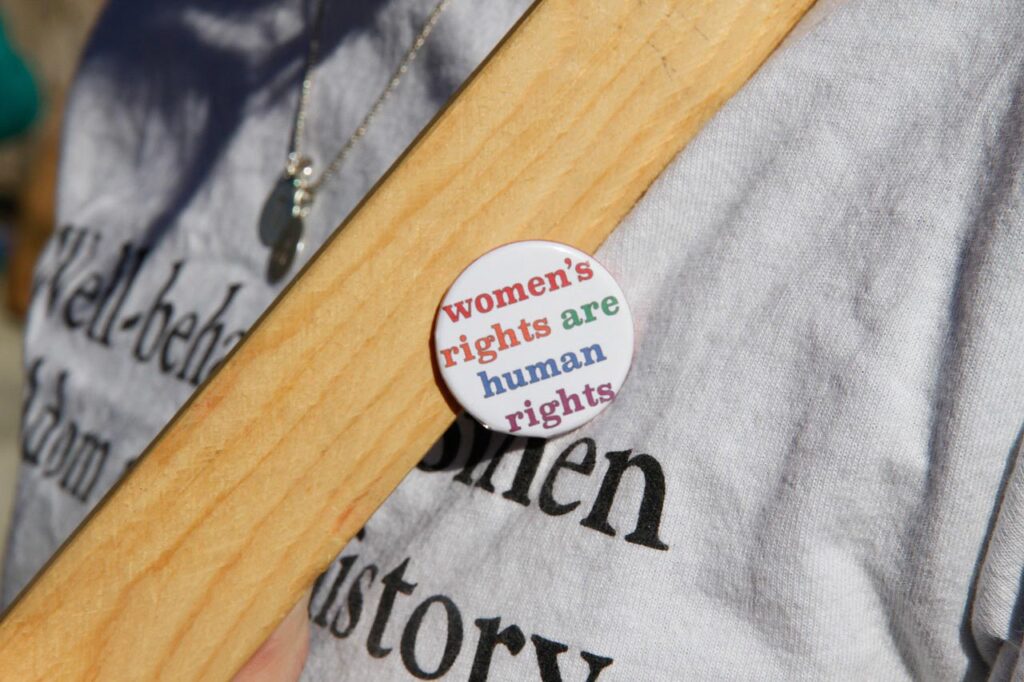By Dr Judy Dlamini

Forty-two years after the adoption of the Convention on the Elimination of all forms of Discrimination Against Women (CEDAW), often described as an international bill of rights for women, many women and girls still do not have equal opportunities to realise rights recognised by law. This is in spite of CEDAW’s adoption by 188 states.
March is a Human Rights Month in South Africa, in recognition of the sacrifices by ordinary men and women, for the attainment of political freedom in 1994.However, it is concerning that for women and girls, by virtue of their gender, human rights are still elusive. Gender inequality persists whilst Gender Based Violence and Femicide (GBVF) is escalating.
So, what are “human rights”?
All humans aspire to live in a world where everyone’s dignity and self-worth is respected, a society and community in which there is an adequate standard of living and a decent home for everyone, where no one is disadvantaged at home, in social settings or the workplace because of their gender and indeed where violence has no place.
Human rights define the value and worth of each person and their relationship to government and society.
That is why Article 1 of the Universal Declaration on Human Rights (UDHR) states that “All human beings are born free and equal in dignity and in rights.”
Our constitution, which is regarded as one of the most progressive in the world, contains a Bill of Rights providing for all categories of human rights, that are ordinarily included in most international human rights instruments.
Indeed, human rights are inherent in everyone’s life by virtue of being humans, but for women, the story is different. Many women have no voice; they are violated in their homes, in the public sphere, including their places of work.
By virtue of their gender, women and girls have not enjoyed their human rights, as seen from the escalating GBVF, exclusion from leadership positions in most sectors of society. Although all human beings are born free and equal in dignity and rights, many women struggle daily to have their most basic rights protected.
Human rights , law and social norms
While human rights exist as a birth-right, to be effective they need to be supported by law and a culture that embraces diversity and equity across all social identities.
The South African government has demonstrated its commitment to address the human rights of women through legislation and financial commitments.
There are also various initiatives that seek to address the Gender-Based Violence pandemic, including the 2020 Gender-Based Violence and Femicide National Strategic Plan, the inter-ministerial committee to investigate the root causes of violence against women and children, the National Child Care and Protection Forum and the National Domestic Violence inter-sectoral committee, among others.
Legislation alone has not been enough to drive the desired change. A deliberate and consistent attempt to change social norms is what will bring the sustainable change. The latter is more difficult to attain. How do you change informal social norms that are internalised by individuals; traditions, beliefs, attitudes, values, norms, and practices that are deeply imbedded in culture which operate at different levels of society
As researchers and academics have responded, discriminatory social institutions that restrict women’s access to opportunities, resources and power explain the slow progress towards gender equality, they can either drive processes of social change or act as brakes and barriers to such processes .
Fixing failures of systems in our society
The truth is that we can have as many bills, committees, conventions and partnerships as we want, but sustainable progress is not possible unless we fix failures of systems in our society so that women have equal access to opportunities and their rights are respected in all aspects of their lives. Otherwise human rights will be more a dream than reality.
So why is it difficult to deliver human rights for women? GBVF can be directly linked to the unequal distribution of power and to the asymmetrical relationships between men and women in our society, perpetuating patriarchy, toxic masculinity and the devaluation of women and their expected subordination to men.
Socialisation of boys and men
Gender is socially constructed, it is a cultural phenomenon, underpinned by behaviours which are learned and therefore can be unlearned. That is why society has an important role in the socialisation of boys and girls, from families, schools, church, amongst other agents of change.
With the same process and through the same agents, everyone, particularly men and boy children can be taught behaviour deemed appropriate for their gender or just for humanity. They can be taught that human dignity is something which is equal amongst all humans, that affording women their dignity is to preserve one’s self esteem, self-regard and self-respect.
Deconstructing social, cultural structures
The most urgent need is to deconstruct the social and cultural structures that permit the power of male domination and the continued subordination of women expressed through beliefs that women are inferior to men and that it is acceptable to discipline women and girls with beatings, threats or coercion.
Raising awareness about the benefits of equality across different social identities, including gender, and addressing stigma and victim-blaming attitudes in cases of GBV, should be a priority for every family and community.
Improving the situation for survivors and their access to services, respectfully and confidentially granting non-discriminatory access to services and not blaming them for what happened, when those to blame are the perpetrators, should be a priority.
As a nation we need healing. Only a sick nation kills its children and its women. Accountability and recourse, while essential for the perpetrators, this has to be followed by healing intervention for all those that are affected by GBVF. That has the power to stop the circle of violence.
Services should be comprehensive to cover health needs, psychological, legal support and economic empowerment, regardless of the background and the circumstances of the incident.
The GBVF response fund1
As part of the healing process, public Private Partnerships are important in tackling national challenges. Government alone cannot help in addressing the twin pandemics,
That is why the International Women’s Forum South Africa (IWFSA) facilitated the birth of the private sector led Gender Based Violence and Femicide Response Fund 1 (GBVF Fund 1), in partnership with the presidency, this was a welcome initiative.
After the formation of the Solidarity Fund to help fund COVID-19 initiatives, the GBF Fund 1 is another collaboration between the public and private sector which raised more than R128-million, in pledges from business, at its launch at the beginning of February 2021.
The success of this collaboration, which seeks to help in the eradication of GBVF through the implementation of the six pillars of the National Strategic Plan, will depend on partnerships with the different relevant government departments, civil society, faith-based organisations, philanthropists, traditional leaders, activists’ groups, Community Based Organisations and Non-Governmental Organisation. The task is too big for one group.
Now more than ever, there is a need for broad mobilisation by civil society to urge the eradication of GBVF.
Eradicating GBVF is everyone’s responsibility.
Gender-based violence, all forms of sexual harassment and exploitation, and inequality are incompatible with human dignity and must be eliminated. And it is everyone’s responsibility.
Women are the pillar of society, children are its future, protecting their rights is protection of the future of any society and human dignity.
As former United States First Lady, feminist and former presidential candidate, rightly stated “Human rights are women’s rights, and women’s rights are human rights…,” everyone’s own awareness and support for human rights is one of the most important ways to enforce them by recognising that the fundamental principle of human rights is to provide human dignity to women too.
#GenerationEquality, #GBVFEradication in our lifetime.
Dr Judy Dlamini is chairman of the GBVF Response Fund1, Chancellor of the University of Witwatersrand and Executive Chairman of Mbekani Group.
This article was first published by Timeslive (21 Mar 2021)


